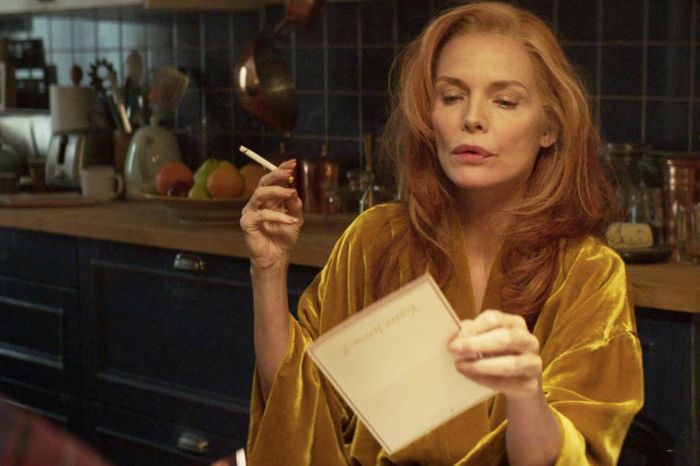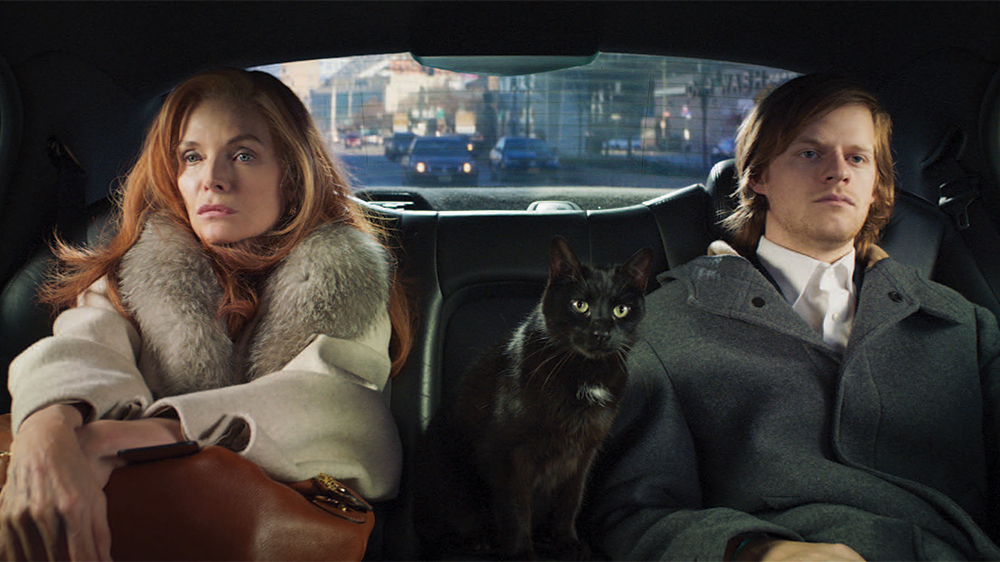French Exit
15Michelle Pfeiffer has never won an Oscar. To put that in some kind of context, Cher has won a golden statuette, and although it was a fine performance (in 1987’s Moonstruck), it feels somewhat disturbing that Cher has managed to win won, but Pfeiffer hasn’t.
She has been nominated three times however, and should have really won for any of those roles (1992’s Love Field, 1989’s Dangerous Liaisons and 1990’s The Fabulous Baker Boys) but has been woefully ignored by the Academy every single time.
There is an argument that perhaps besides those roles, she isn’t necessarily an actress to deliver Oscar-winning performances. But the other side of that argument is that perhaps she is one of the most underrated talents of her generation, which feels more like the case.
Here, as an actor in her early sixties, she gives what could possibly be her best performance yet on screen in this terrifically quirky comedy.

Grease 3 huh? If we can get Travolta in, I'll think about it.
With the death of her husband, Frances Price (Pfeiffer) finds herself in the unusual position of being absolutely broke. This is quite the dilemma for the New York socialite, with the bank swift to take hold of all her assets, including the family home.
Thankfully a close friend comes to her rescue, who offers her the use of her apartment in Paris, which Frances gladly accepts.
So she packs her bags and sets off for France, with her son Malcolm (Lucas Hedges) and their cat small Frank, on what turns out be quite an emotional adventure for the trio.

if these guys aren't talking again could you drop me off at that deli on the corner?
Considering there are so few roles for actresses of a certain age, the role of Frances Price is a veritable gift for Pfeiffer. It’s only fitting then that she embraces it fully, delivering one of her finest performances on film.
The success of the film comes from the writing; Patrick DeWitt’s script, based on his own novel, is a sublime thing of beauty. It has a deliciously deadpan humour throughout, which at times makes it the closest thing to being a new Wes Anderson film without it actually being one.
Pfeiffer clearly has a blast playing Price, a well-meaning woman with the occasionally cutting tongue, who has only been introduced to her son Malcolm in recent years, after removing him from school on a whim, to then go on and develop a very close relationship with him. Although their relationship is the main focus of the film, there are a number of larger than life characters that they interact with, most notably Valerie Mahaffey as Madame Reynard, who certainly gives Pfeiffer a run for her money as the best performance in the film.
Even Hedges, who has been accused of being somewhat flaky in previous roles, comes of age here as Malcolm, a son who has been starved of affection from both parents at an early age, and who has quickly become the doting son, willing to go along with any of his mother’s fancy notions, including just up and leaving his life in New York behind, to be with her in Paris.
The film overall has a timeless quality to it; director Azazel Jacobs has shot it in a way where it feels almost suspended in time. There are no references to modern technology, and the pair travel to France by ship, which certainly gives it a more glamorous feel over flying. To that end, it’s the kind of film that feels like it was shot in the seventies, where it was more accepted for titles that were far from mainstream to thrive, such as 1971’s Harold and Maude.
It is a film that has a surprising amount of warmth and charm, as well its fair share of the truly oddball, making for a truly eccentric experience.
The fact is that Pfeiffer is unlikely to be even considered by the Academy for her role, but by this stage is unlikely to be either surprised or even care at being overlooked yet again. That doesn’t take way from the fact however that she is in the finest form here, and clearly having the time of her life in the process, in a performance that is beautifully nuanced and highly amusing, darkly under the top fashion.
If you’re a fan of both Pfeiffer and comedies with a darker edge, then French Exit is like having all your noŽls come at once.
